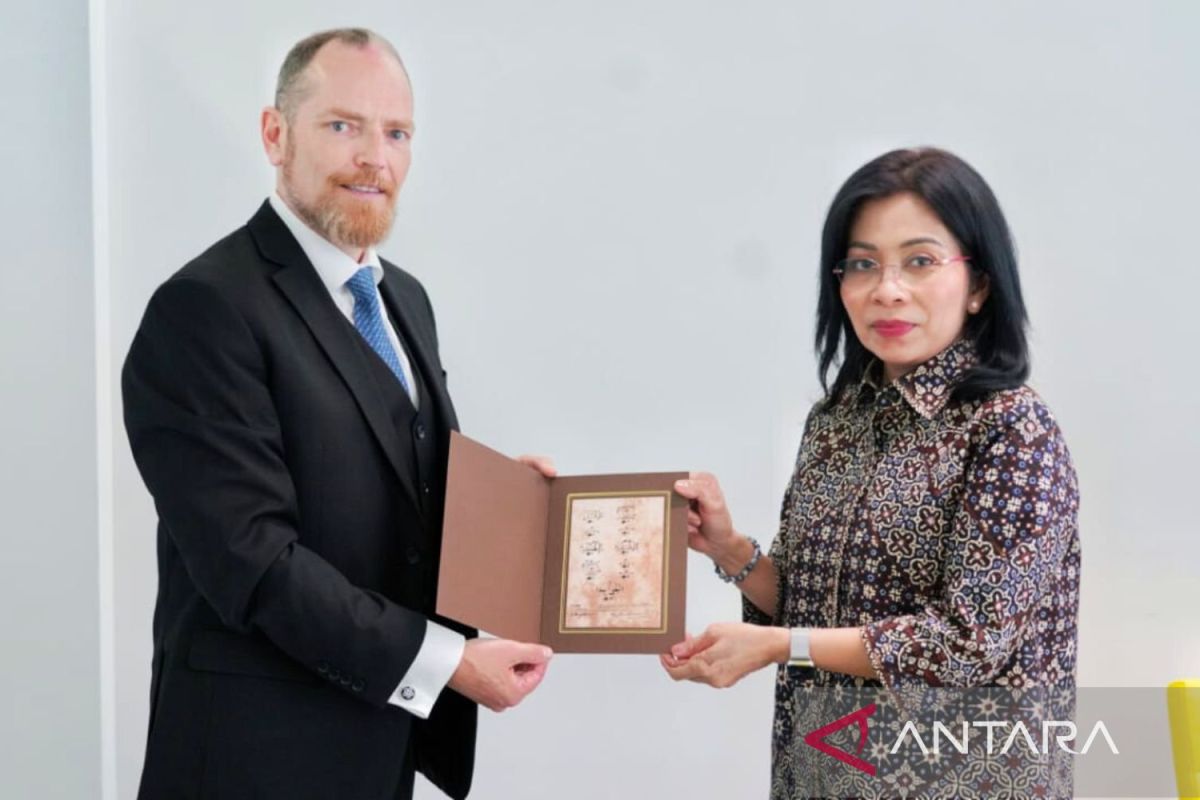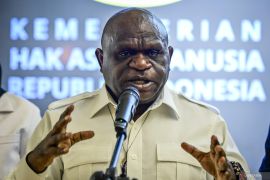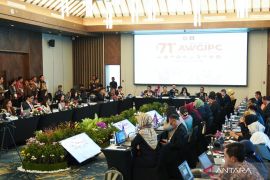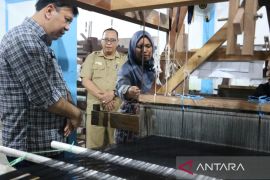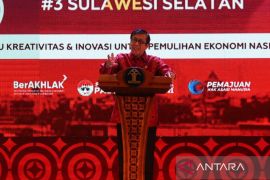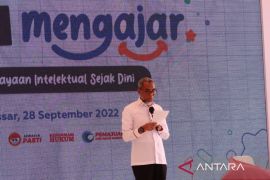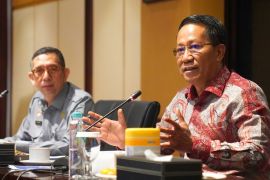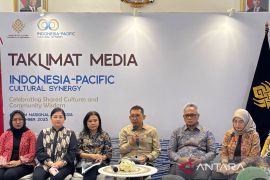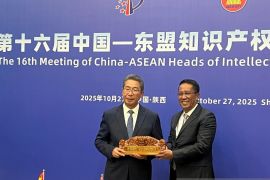"Such cooperation is crucial to Indonesia in strengthening its infrastructure and mechanisms of the protection of intellectual properties,"Jakarta (ANTARA) -
Indonesia and Canada agreed to strengthen bilateral collaboration on intellectual property on the sidelines of 65th Series of Meetings of the Assemblies of World Intellectual Property Organization (WIPO) Member States in Geneva, Switzerland, July 15.
Intellectual Property Director General at Indonesia's Law and Human Rights Ministry, Min Usihen, accentuated the importance of forging and maintaining cooperation in intellectual property with developed countries, such as Canada, with its Canadian Intellectual Property Office (CIPO).
"Such cooperation is crucial to Indonesia in strengthening its infrastructure and mechanisms of the protection of intellectual properties," Usihen remarked during a meeting with CIPO, as cited from her office's statement here on Wednesday.
Usihen said her side was keen to receive technical support and exchange notes with the CIPO to effectively create, protect, and utilize intellectual properties in Indonesia.
She then drew attention to the Indonesian Intellectual Property Academy (IIPA), an institution developed with WIPO's assistance that aims to help Indonesia produce talents genuinely capable of handling matters related to intellectual property.
On that note, the official expressed hope that the CIPO would assist the IIPA in applying international standards and bringing concrete benefits to all relevant stakeholders across Indonesia.
During the bilateral meeting, Usihen also briefed CIPO representatives on Indonesia's significant progress in managing intellectual properties.
In this regard, she noted that Indonesia had acceded to international regulations, such as the Madrid Protocol, Marrakesh Treaty, Beijing Treaty, Nice Agreement, and Budapest Treaty.
Indonesia has also been implementing domestic regulations concerning copyright, patent, trademark, and also communal intellectual properties related to genetic resources, traditional knowledge, and expression of traditional culture, she stated.
Usihen then attributed advancements in the management of intellectual properties to the use of sophisticated technologies, such as artificial intelligence, nanotechnology, and blockchain.
"However, these technologies also pose brand new challenges that require international cooperation to overcome effectively," she added.
Related news: Indonesia, S Arabia forge intellectual property cooperation
Related news: Indonesia highlights commitment to supporting WIPO work programs
Intellectual Property Director General at Indonesia's Law and Human Rights Ministry, Min Usihen, accentuated the importance of forging and maintaining cooperation in intellectual property with developed countries, such as Canada, with its Canadian Intellectual Property Office (CIPO).
"Such cooperation is crucial to Indonesia in strengthening its infrastructure and mechanisms of the protection of intellectual properties," Usihen remarked during a meeting with CIPO, as cited from her office's statement here on Wednesday.
Usihen said her side was keen to receive technical support and exchange notes with the CIPO to effectively create, protect, and utilize intellectual properties in Indonesia.
She then drew attention to the Indonesian Intellectual Property Academy (IIPA), an institution developed with WIPO's assistance that aims to help Indonesia produce talents genuinely capable of handling matters related to intellectual property.
On that note, the official expressed hope that the CIPO would assist the IIPA in applying international standards and bringing concrete benefits to all relevant stakeholders across Indonesia.
During the bilateral meeting, Usihen also briefed CIPO representatives on Indonesia's significant progress in managing intellectual properties.
In this regard, she noted that Indonesia had acceded to international regulations, such as the Madrid Protocol, Marrakesh Treaty, Beijing Treaty, Nice Agreement, and Budapest Treaty.
Indonesia has also been implementing domestic regulations concerning copyright, patent, trademark, and also communal intellectual properties related to genetic resources, traditional knowledge, and expression of traditional culture, she stated.
Usihen then attributed advancements in the management of intellectual properties to the use of sophisticated technologies, such as artificial intelligence, nanotechnology, and blockchain.
"However, these technologies also pose brand new challenges that require international cooperation to overcome effectively," she added.
Related news: Indonesia, S Arabia forge intellectual property cooperation
Related news: Indonesia highlights commitment to supporting WIPO work programs
Translator: Agatha O, Tegar Nurfitra
Editor: Arie Novarina
Copyright © ANTARA 2024
